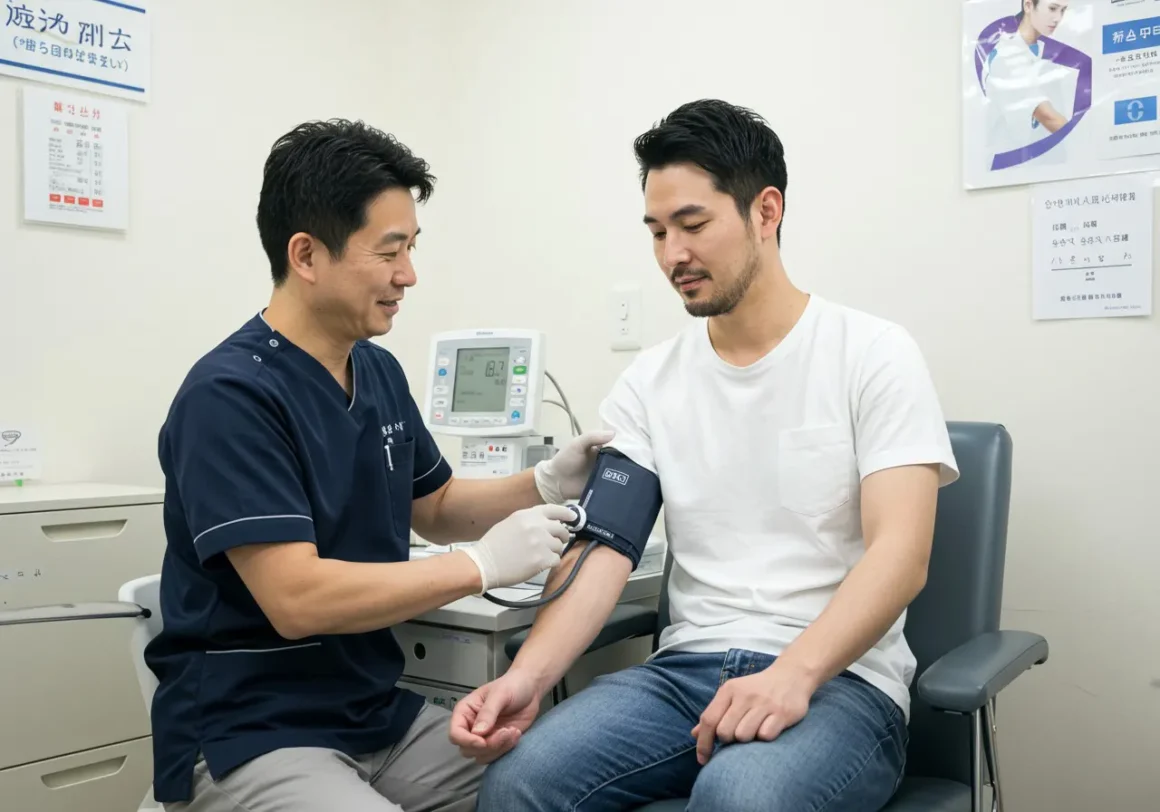Nobody enjoys thinking about potential health problems. It’s like looking at a tricky section of a map and just hoping you don’t fall into the pitfall. But here’s the thing: ignoring that pitfall doesn’t make it disappear. When it comes to our health as men, there are some specific challenges we need to be aware of. Knowing them isn’t about being a hypochondriac; it’s about being prepared and taking control.
We’re talking about the big hitters here – stuff like heart disease, which unfortunately is still a major concern for guys. Then there are certain cancers, like prostate and testicular cancer, that are specific to us and require our attention. Now, this might sound heavy, but stick with it, because here’s the empowering part: a huge amount of our risk for these things isn’t set in stone. We have a lot more influence than we think.
Knowing your family history is like getting a heads-up before a test. Did heart disease run in your family? Were there instances of prostate or other cancers on either side? This isn’t a guaranteed sentence, but it is valuable insider information. It tells you what genetic predispositions might be lurking, which means you can be more proactive and have targeted conversations with your doctor.
But the truly powerful tools we have are the choices we make every single day. The snippet mentioned it, and it’s worth hammering home: diet, exercise, maintaining a healthy weight, and avoiding tobacco are incredibly potent weapons in our health arsenal. Think of it as building a really strong defense system from the inside out. You’re not just hoping to avoid problems; you’re actively making yourself more resilient. This foundation of physical awareness is key, and it honestly makes tackling other aspects of our well-being a lot easier too.
Okay, so you know you need to know the risks and you know lifestyle plays a huge role. What does that actually look like in practice?
First, the Prep Work (What You Need):
- Dig into Your Family History: Talk to your parents, grandparents, aunts, uncles. Gather as much information as you can about major health issues in your family, especially heart disease and cancers. Write it down if you need to.
- Find a Good Doctor and Talk Honestly: This is non-negotiable. You need a primary care physician you trust and feel comfortable talking to about everything – your family history, your lifestyle habits, any weird aches or changes you notice. They are your co-pilot in this.
Now, the How-To (Actionable Steps):
- Fuel Your Body Right: This doesn’t mean living on kale and water (unless you’re into that). It means focusing on a balanced diet.
- More: Fruits, vegetables (aim for a colorful variety), whole grains, lean proteins (chicken, fish, beans, nuts).
- Less: Processed foods, excessive sugar, unhealthy fats (like trans fats found in many fried or packaged foods), excessive red and processed meats.
- Think simple swaps: Grilled chicken instead of fried, fruit for dessert, water instead of sugary drinks. It adds up.
- Get Moving: Exercise isn’t just about looking good; it’s fundamental for heart health, weight management, and even cancer risk reduction.
- Aim for Consistency: Try for at least 150 minutes of moderate-intensity aerobic activity (like brisk walking or cycling) or 75 minutes of vigorous activity (like running1 or swimming) per week.
- Add Strength: Include muscle-strengthening activities at least two days a week. You don’t need a gym; bodyweight exercises work great.
- Find What You Like: You’re more likely to stick with it if you enjoy it. Walk in nature, play a sport, dance, lift weights – whatever gets you moving.
- Maintain a Healthy Weight: Carrying excess weight, especially around the middle, significantly increases your risk for heart disease, diabetes, and certain cancers. Diet and exercise are the keys here. It’s not about being skinny; it’s about being healthy for your body. Talk to your doctor about what a healthy weight range looks like for you.
- Quit Tobacco, Limit Alcohol: This one is pretty straightforward but incredibly impactful. Smoking is a major risk factor for heart disease and numerous cancers. Excessive alcohol consumption also increases risks. If you smoke, get help to quit. If you drink, do so in moderation (generally, up to two drinks per day for men).
- Don’t Skip Screenings and Check-ups: This is where knowing your risks and talking to your doctor pays off big time. Regular check-ups allow your doctor to monitor your blood pressure, cholesterol, and blood sugar – key indicators for heart disease and diabetes. Depending on your age, family history, and lifestyle, your doctor will recommend specific cancer screenings (like for prostate cancer or colorectal cancer). Early detection can make a massive difference in outcomes. Don’t put these off.
Tools and Resources to Help You:
- Your Doctor: Seriously, they are your best resource for personalized advice and guidance.
- Reputable Health Websites: Organizations like the Centers for Disease Control and Prevention (CDC), the National Institutes of Health (NIH), the American Heart Association, and the American Cancer Society offer reliable information on risks, prevention, and healthy living.
- Fitness Apps and Trackers: Can help you set goals, monitor activity, and stay motivated.
- Nutrition Guides or Registered Dietitians: If you need help figuring out how to eat healthier, these resources can provide personalized plans and advice.
Look, this isn’t about living in fear of what might happen. It’s about acknowledging the reality of potential challenges and then empowering ourselves with the knowledge and the tools to face them head-on. By understanding our risks and consistently making conscious choices about how we eat, move, and take care of ourselves, we build resilience. We’re not just preventing problems; we’re actively creating a stronger foundation for our overall health and well-being, setting us up to thrive in all other areas of life. It starts with knowing the map and choosing the best path.

















